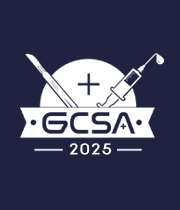Title : Disparities in postoperative recovery: An audit of baseline activity return across five surgical subspecialties
Abstract:
Introduction: When looking at prehabilitation’s impact on postoperative outcomes, understanding a patient’s recovery path is essential. This audit investigates the proportion of Nottingham University Hospital patients who returned to baseline and the speed with which they did so.
Methods: Patients from five surgical subspecialties were studied: Upper Gastrointestinal (UGI), Hepato-pancreatobiliary (HPB), Thoracic, Gynaecological, and Urology. Data on activity levels were collected at 3 months post-surgery and compared to preoperative baseline levels. Chi-square tests were used to assess the likelihood of returning to baseline activity, with significance set at p≤0.05. The relationship between age and recovery was also analysed.
Results: All surgical subspecialties demonstrated delayed return to baseline activities at 3 months (p≤0.05). Patients undergoing UGI, HPB, thoracic, gynaecological, and urological surgeries were less likely to return to baseline activity compared to those who underwent colorectal surgery at 3 months (p≤0.05). Additionally, HPB, UGI, and gynaecological patients demonstrated significantly lower activity levels relative to the colorectal cohort at 3 months (p≤0.05). No significant correlation was found between age and either activity levels or return to baseline activity.
Conclusion: The findings of this audit outline disparities in postoperative recovery across five surgical subspecialties, with colorectal patients recovering the quickest and most completely. Future studies should investigate objective physiological parameters such as Cardiopulmonary Exercise Testing and baseline Exercise Tolerance Testing for a non-biased picture of recovery. Longitudinal data collection at 6, 9, 12, and 24 months would help yield a more comprehensive understanding of long-term recovery patterns.


